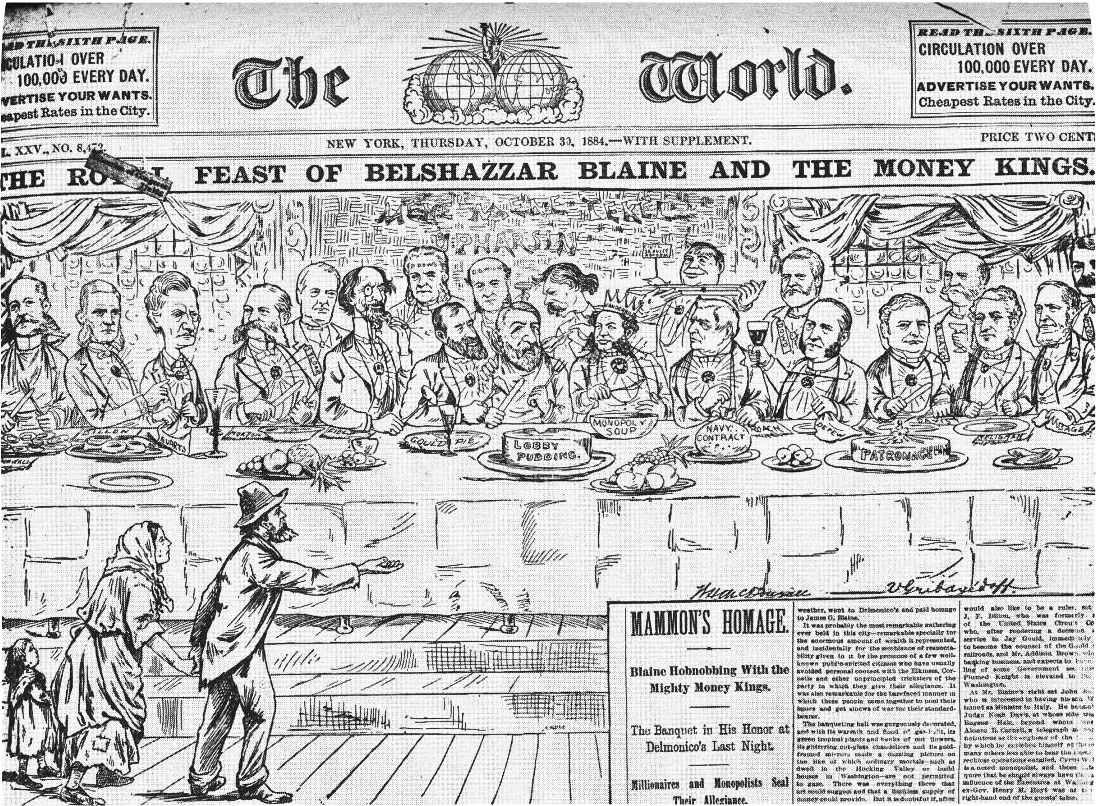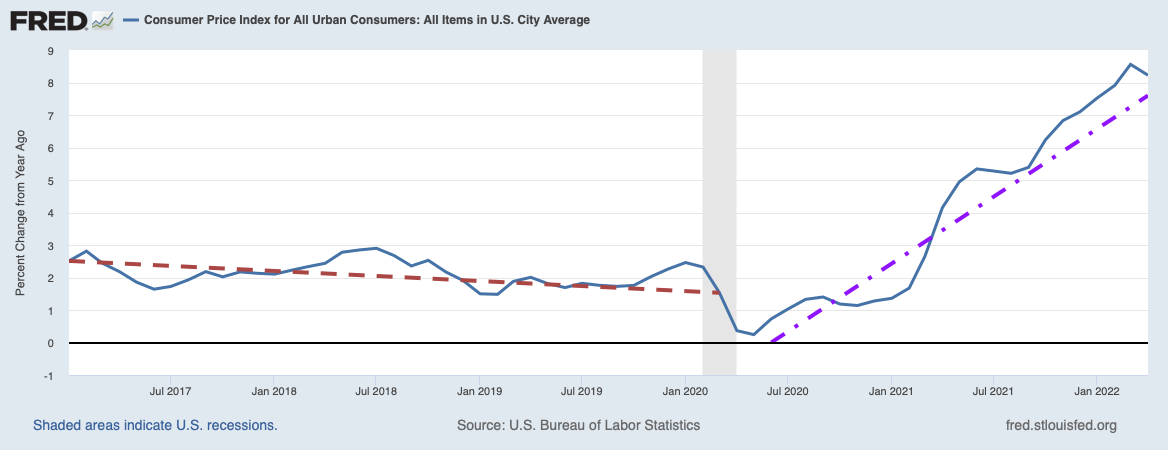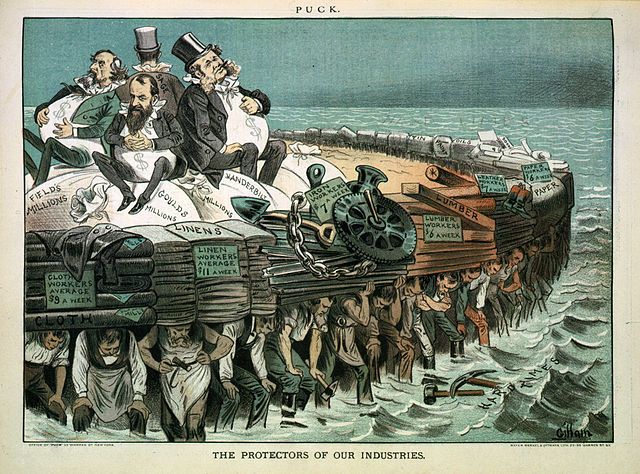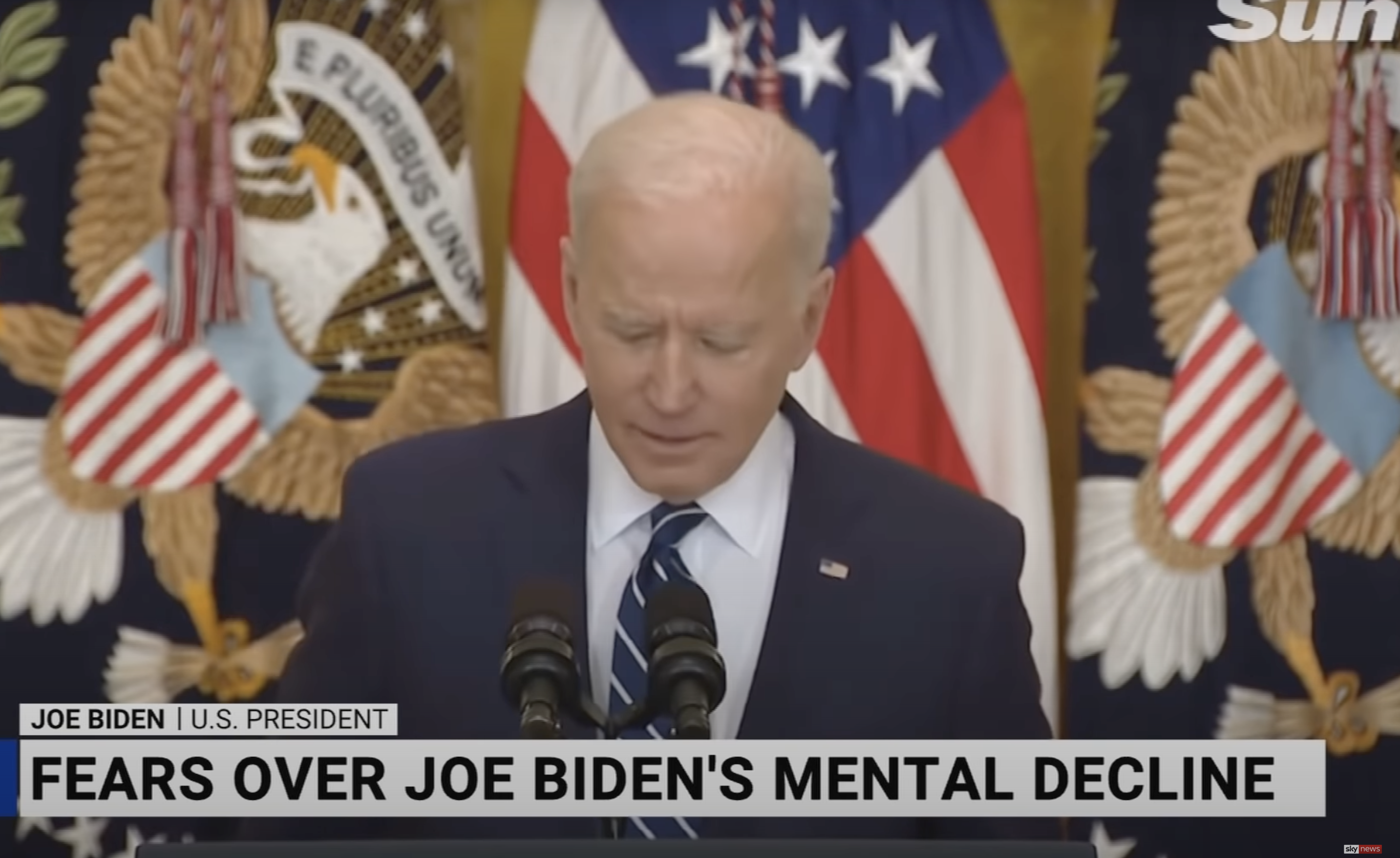Donald Trump’s Stupidity About Foreign Trade
Bethlehem Steel (Bethlehem, Pennsylvania facility pictured) was one of the world’s largest manufacturers of steel before its closure in 2003.
Wikimedia Commons / Jschnalzer
By now, you have almost certainly heard about Donald Trump’s announcement last week that he plans a 25 percent tariff on foreign steel imports, and 10 percent on aluminum imports. Throughout most of last year, it appeared Trump’s worst instincts were being moderated by exposure to other, more professional viewpoints. Particularly important were the perspectives of Republican congressional leaders, of his Chief of Staff, Gen. John Kelly, and of his Secretary of State, Rex Tillerson, Following last week’s announcement on tariffs, however, Trump’s foreign trade views during the 2016 campaign favoring mercantilism appear to have returned to threaten the world economy.
Foreign and Domestic Reactions
Almost immediately, stock markets around the world issued their collective judgement that such a decision would be completely idiotic. As soon as Trump’s tariff intentions were published, the Dow Jones fell by more more than 570 points, but recovered a bit to close down only 420 points. The Nikkei in Japan fell 2.4%, Hong Kong and South Korean markets were down 1.6%, and Australia’s ASX200 fell 1%.
Foreign governments were no less negative. European Commission President Jean-Claude Juncker promised if the United States imposed these tariffs, Europe would impose retaliatory tariffs on such American products as Kentucky Bourbon, Harley-Davidson motorbikes, and Levi Jeans. Commenting on the national security justification given by Trump for the tariffs, German Foreign Minister Sigmar Gabriel declared the American reasoning to be “incomprehensible.” He further declared,
The EU must respond decisively to US punitive tariffs, which endangers thousands of jobs in Europe. There should be no doubt about that in Washington.
Other retaliatory tariffs suggested by European Union officials would be on U.S. steel products, and agricultural products such as rice, maize, orange juice, and cranberries. On hearing of the European threats, Trump tweeted the following:
If the E.U. wants to further increase their already massive tariffs and barriers on U.S. companies doing business there, we will simply apply a Tax on their Cars which freely pour into the U.S. They make it impossible for our cars (and more) to sell there. Big trade imbalance!
— Donald J. Trump (@realDonaldTrump) March 3, 2018
Canadian Prime Minister Justin Trudeau said the tariffs were “absolutely unacceptable,” although Canada has yet to threaten specific trade retaliation. Other countries promising reprisals are Mexico, South Korea, and (of course) China.
Domestic U.S. reaction, besides that of the stock market, was led by a great many Republican congressmen. The possibility of a general trade war with the entire world is causing widespread panic among Republican legislators. All by itself, the reduction of foreign trade through tariffs hurts Americans by raising the prices of the goods they buy. However, the prospect of global trade war is far more frightening. According to the World Bank, the volume of U.S. foreign trade has been falling sharply since 2014, but even so its size was 26.58% of GDP in 2016. Exports of goods and services provided earnings of 11.89% of GDP in 2016. A general trade war would cause huge disruptions in the American economy, almost certainly creating a gut-busting recession.
Trump’s Mercantilist Beliefs
Donald Trump has long expressed a predilection for mercantilist beliefs. For over three decades he has declared our allies and trade partners have taken advantage of the U.S. with their trade policies. As a symptom of this alleged U.S. victimization, he has consistently pointed to trade deficits. He has also identified the off-shoring of U.S. jobs as a result of our substituting foreign supply sources for erstwhile domestic sources.
What these Trump viewpoints demonstrate is he tends to consider foreign trade to be a zero sum game. If foreign countries capture the supply of some U.S. goods and services, he believes the U.S. must necessarily lose the production capacity represented by that supply. Trump would consider a foreign trade surplus to be desirable, as that would mean, in his view, that U.S. jobs and productive capacity would not be sacrificed for cheaper foreign goods.
What Trump seems to sincerely believe, along with his ideological brothers from the mercantilist age 600 to 500 years ago, is the off-shoring of production leads to the economic weakening of the United States. Amazingly, Trump is not alone in the modern world in being an adherent of mercantilism. China most importantly has embraced this long-rejected ideology, and other Asian nations such as Japan, Taiwan, and South Korea have also followed mercantilist policies in the past. Nevertheless, the fundamental errors of mercantilism were revealed to us more than two centuries ago by Adam Smith in his book The Wealth of Nations, and by David Ricardo with his law of comparative advantage. Shortly, we will examine why mercantilist policies are such a mistake.
Where Trump Might Have a Point
Yet, we must the give the Devil his due, and admit that Trump just might have a point. When Adam Smith and David Ricardo envisioned free-trade between nations, they assumed a system where free-markets — not governments — dominated trade. However, unsurprisingly, authoritarian nations have had little respect for free-markets.
China in particular made a strategic decision after 2006 to steer away from ordinary foreign direct investment to a new development model of helping domestic Chinese firms at the expense of foreign companies. To achieve this end China adopted mercantilist policies to appropriate foreign corporate capabilities wholesale. In order for a foreign company to operate in China, they were required to build Chinese production facilities and to surrender intellectual property to Chinese partner companies in joint ventures. U.S. companies forced into such joint ventures include Ford Motor Co., DreamWorks Entertainment, and Fellowes.
On top of all that, China is implicated as the world’s largest thief of intellectual property, accounting for 50% to 80% of global IP theft. Estimates of how much Chinese IP theft is costing the American economy vary greatly from a low of $50 billion annually to a high of $600 billion. Other Chinese mercantilist policies to advantage Chinese companies at the expense of foreigners include currency manipulation, onerous regulatory certification for foreign companies, discriminatory government procurement policies, and subsidies for state-owned companies.
Governments have never been very wise allocators of economic assets, and the Chinese government has been no exception. Government direction of large investments in infrastructure, heavy industry, and high tech industry have required a great deal of capital for very little (if any) profit. The unprofitable investments in fact threaten China’s economic future. A noteworthy example of Chinese industrial overcapacity is their steel industry.
In order to recover at least a portion of their investment in steel, the Chinese have been dumping steel (i.e. selling it for prices at or below their production costs) to other countries for years. Trump accused China of dumping their steel in the U.S. throughout his 2016 campaign, and continues to make the accusation today. Some Chinese steel imports were already hard hit with large U.S. tariffs imposed by the Obama administration in 2016. Those tariffs on some Chinese steel products were more than 200%.
Yet, Chinese steel imported by the United States appears to be the least of America’s problems. In 2017 the four largest exporters of steel to the U.S. were Canada (21% of imports), Brazil (19%), Russia (13.2%), and Mexico (10.1%). China was way down in 13th place with around 2.4% of U.S. imports. Chinese exports to the U.S. fell from 1.8 billion Kg in the first ten months of 2015 to 0.46 billion Kg in the first ten months of 2017. There is some evidence of China transshipping steel through third countries to hide the steel’s origin, but I have seen no evidence for Chinese steel transshipments to the U.S. The European Union would appear to have a far greater problem with Chinese steel dumping than the U.S.
Donald Trump’s one valid point is that autocratic states might well circumvent the law of comparative advantage for geopolitical rather than economic reasons. In doing so, the offending states like China harm the economies of all nations. This is not because they supplant domestic suppliers with lower prices; that is actually an advantage for the importers, as will be shown in the next section. However, because they sell below the costs of production and can not maintain such prices forever, they sow the seeds of future international economic disruptions. What happens when U.S. or European steel producers are driven out of business, and the steel dumping nations decide to start selling at exorbitant prices? Also, can we allow Chinese companies to buy up U.S. assets when China strictly restricts access by U.S. companies to the Chinese economy? As for the theft of intellectual property, how can any economy survive large scale theft? What Donald Trump suggests is we respond to mercantilist countries by applying mercantilist policies against them.
Yet, is trade protectionism the best way to counterattack such offenders?
Why Tariffs Are Almost Always (If Not Always) Stupid
What happens when a foreign supplier sells to customers in the United States? First, the foreign buyer must either agree to receive U.S dollars in payment, or the U.S. buyer must go on the international currency market to buy the currency of the exporter for payment. In either case, either directly or indirectly, U.S. dollars are exchanged for the traded good. Now what happens if the companies, people, and government of the exporting country do not cumulatively buy goods from the United States equivalent in worth to all the exporting country has sold to us? Then an American trade deficit exists between the two countries. The United States has received real wealth from the exporting country in terms of goods and services. And what has the foreign country received for the trade not balanced by equivalent American exports back to them? Money. Not wealth, but money, the units of which are merely claim checks for wealth.
As long as the country exporting to the U.S. does not spend the currency acquired on equivalent amounts of U.S. goods, the U.S has been enriched by receiving goods, real wealth; and the foreign country has been equivalently impoverished by not getting goods of equivalent worth back from the U.S. If free-markets prevail (a very big if), market forces would drive the foreign country to spend their dollars to acquire American goods they want and need.
If the foreigners can find no such goods, the number of dollars in foreign possession would accumulate. This would decrease the dollars’ value as there is little from the U.S. the foreigners can find they want. As the international value of the dollar goes down, the price of goods the U.S. imports would increase in terms of U.S. dollars. Unless the foreign country can find U.S. goods to buy with those dollars, trade with the U.S. would ultimately grind to a halt.
But what about the American jobs lost because foreign suppliers of a good have supplanted domestic suppliers? If American steel companies are driven out of business because American steel consumers mostly buy from foreign suppliers, the former American steel workers will be laid off. Is this not an injury created by foreign trade? Well, actually, no. This is where Ricardo’s law of comparative advantage comes in.

Wikimedia Commons / Thomas Phillips (1770-1845)
David Ricardo (18 April 1772 – 11 September 1823) was a successful British stock broker, loan broker, market speculator, and political economist. No doubt the insights leading to his landmark law of comparative advantage were as much due to his practical experiences as to his close reading of Adam Smith’s masterwork, An Inquiry into the Nature and Causes of the Wealth of Nations, aka The Wealth of Nations. The law of comparative advantage has the distinction of being the only neoclassical economic law for which a relatively simple yet rigorous mathematical proof exists. You can find my own version of this proof in PDF format here.
To understand the statement of the law, you must understand the two ideas of absolute advantage and comparative advantage. The idea of absolute advantage is simple enough. If nation A can produce a good at less cost than another country B, then it makes sense for A to export the good to B. Country A then has an absolute advantage in producing and exporting the good. Costs are translated between the countries through rates of currency exchange.
Comparative advantage is somewhat more subtle. Suppose a person in country A takes the ratio of the cost of producing a good to its value (i.e. its price) in his country’s market, This gives his country’s cost of production in terms of some units of his country’s valuation of the good. If the valuations of the country’s citizens for the good falls, the production costs reckoned this way rise. Country B can similarly calculate their cost of production per unit of valuation in country B. If country B has a larger cost of production per unit of their country’s valuation than country A’s cost per unit of country A’s valuation, then country A has a comparative advantage over country B in producing the good.
What the law says in words is the following:
If one country has a comparative advantage over another country with some good, then even if that other country has an absolute advantage, it is advantageous (i.e. profitable) to both countries for the country with the comparative advantage to export the good to the other country. The seller with the comparative advantage can sell it to the importing country for a greater profit than he could obtain in his own country. The buyer can get the good for a smaller price than from any supplier in his own country.
What does this imply for job losses caused by import substitution for some good? If the loss of any jobs due to export substitution were unacceptable under any conditions, then all foreign trade would always be unacceptable. Yet the implications of the law of comparative advantage mean any such job losses are only transitory costs. Once the transients died out, both countries would be in far better economic condition. The fact the buyer can get the good at a better price than from any supplier in his own country implies far more than just getting the good at a lower price. It also means the erstwhile suppliers in the importing country no longer have to make the capital investments to produce the good. Instead, they can take that released capital and invest it in producing other, more profitable goods: goods for which that country would have a comparative advantage relative to other countries.
The fact this has not always happened in recent decades is not the fault of foreign trade. It is not even the fault of competing mercantilist countries like China. It is almost entirely our own fault as a country by making profitable corporate investments close to impossible. Over decades U.S. government regulation gradually suffocated business activity, and high American corporate taxes removed corporate incentives to invest at all. Responding to this environment, corporations over the last decade opted to buy back their own stock and pay dividends instead. With no reinvestment of capital released by import substitutions, the should-be transient costs of displaced labor became instead permanent. During 2017 Trump and the Republicans had already begun acting in the best possible ways to solve this problem of lost jobs due to foreign trade: Deconstruction of the regulatory state and large corporate tax cuts. Over the past year, the partial dismantling of government regulations alone has begun to buildup steam in the American economic engine.
Completely independent of the Trump administration and predating it, some U.S. manufacturing companies had started to return to the U.S. The reasons seem primarily to be increasing labor costs in places like China, along with increasing transportation costs. With the new inducements for domestic U.S. investments provided by the Republicans, that returning trickle should become a flood.
It would be ironic beyond words if Trump would be driven by mercantilist nostrums to set off a general trade war. That might very well destroy all he and congressional Republicans have accomplished to restart the American economy. Let us hope he finds more specific ways to combat predatory mercantilist behavior by the Chinese and others than to succumb to protectionism.
Views: 1,970






























